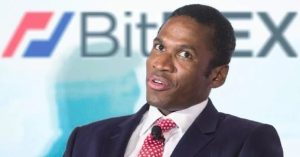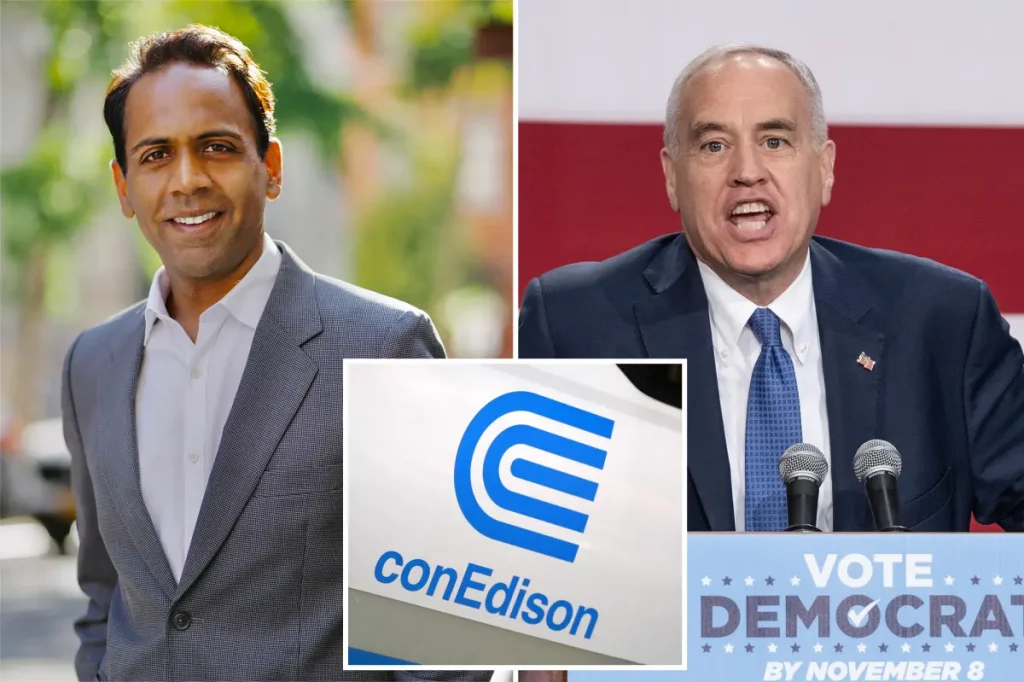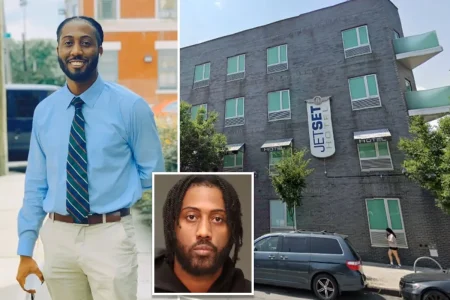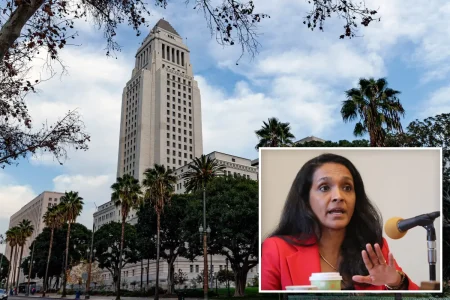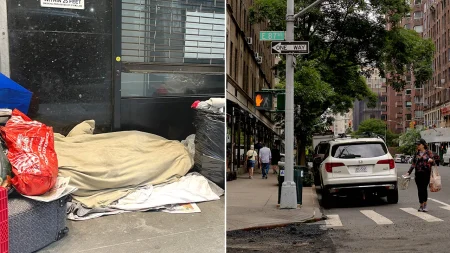Watchdog Candidate Raj Goyle Challenges New York’s Utility Rate System
In an era of steadily climbing utility costs, New York State comptroller candidate Raj Goyle is making waves with his bold proposal to transform how gas and electric bills are regulated. The Democratic challenger to incumbent Tom DiNapoli envisions a more aggressive role for the comptroller’s office, positioning it as a “cop on the beat” to protect everyday New Yorkers from unjustified rate hikes. Goyle’s criticism centers on what he describes as a dysfunctional oversight system where the Public Service Commission has become little more than a “rubber stamp” for utility companies seeking to increase consumer costs. “It’s been Rip Van Winkle,” Goyle colorfully explained to The Post, suggesting that state auditors and regulators have been “asleep at the wheel” while approving higher electric bills, often from foreign-owned utilities. His proposed “Energy Fairness and Ratepayer Accountability” plan would create new auditing powers specifically designed to examine investor-owned utilities and follow the money trail that leads to continual price increases.
The heart of Goyle’s platform targets the financial relationship between utilities and the regulatory structure that oversees them. He argues that New Yorkers are caught in an unfair system where they face continually rising costs while “utilities and their shareholders pocket tax credits, abatements, bonuses, and side deals.” The comptroller candidate promises to “expose those deals” through rigorous audits of the state’s role in price hikes and apply meaningful pressure on regulators and Albany lawmakers to reform the system. This approach represents a significant departure from traditional oversight, with Goyle suggesting that for years, “no one in state government has followed the money.” His campaign frames the issue as one of basic fairness—if companies can raise bills at will, consumers deserve a government watchdog with both the authority and determination to ensure those increases are justified and necessary.
Looking toward future challenges, Goyle has identified the explosive growth of artificial intelligence and data centers as a significant concern for energy costs. With data centers consuming 4.4% of U.S. electricity in 2023—and projections suggesting this could nearly triple to 12% by 2030—the candidate proposes that these facilities should pay a “fair share fee” to offset their outsized impact on the grid. The New York Independent Systems Operators already predicts double-digit grid-load growth tied to data centers, AI development, and general electrification trends. Interestingly, Goyle pushes back against the common narrative that green energy mandates are primarily responsible for rising costs, though utilities maintain that the infrastructure requirements for transitioning from fossil fuels to cleaner energy sources represent a significant cost factor in their rate increase proposals.
The candidate’s approach stands in contrast to what he characterizes as insufficient oversight from incumbent Comptroller DiNapoli. While DiNapoli had no immediate comment on Goyle’s proposals, the challenger’s campaign clearly aims to position the comptroller’s office as a more proactive force in utility regulation. “This campaign will make it clear that the office can and must act as a cop on the beat for ratepayers—auditing, exposing, clawing back and refunding what’s been taken from them,” Goyle stated, suggesting a more interventionist approach than New Yorkers have seen from the office previously. This comes against a backdrop where all major energy suppliers in the state have either proposed rate hikes or had them approved, creating a sense of urgency around the issue for many households struggling with rising costs of living.
Goyle’s background suggests both political experience and an outsider perspective that could resonate with voters frustrated by the status quo. As a tech executive and lawyer who previously served in the Kansas state House of Representatives, he brings legislative experience combined with private sector knowledge. His unsuccessful congressional race against Republican Mike Pompeo (who later became Secretary of State in the Trump administration) demonstrates political resilience. However, Goyle isn’t the only challenger in the race, as affordable housing nonprofit executive Drew Warshaw has also announced his candidacy, potentially splitting the reform-minded vote against DiNapoli, who has held the office since 2007 and represents the institutional establishment.
The comptroller race, often overshadowed by higher-profile contests, may gain unexpected prominence this election cycle thanks to Goyle’s focus on an issue that touches every household in New York—the monthly utility bill. By framing the race around consumer protection and financial accountability, Goyle taps into widespread frustration with rising costs and perceived regulatory capture. His promise to audit, expose, and potentially claw back excessive charges positions him as a consumer advocate in a race that typically focuses more on pension fund management and government efficiency. Whether this populist approach will resonate with primary voters remains to be seen, but Goyle’s entrance has undoubtedly energized the conversation around the comptroller’s proper role in protecting New Yorkers from what many see as excessive utility costs driven by corporate interests rather than genuine need.


